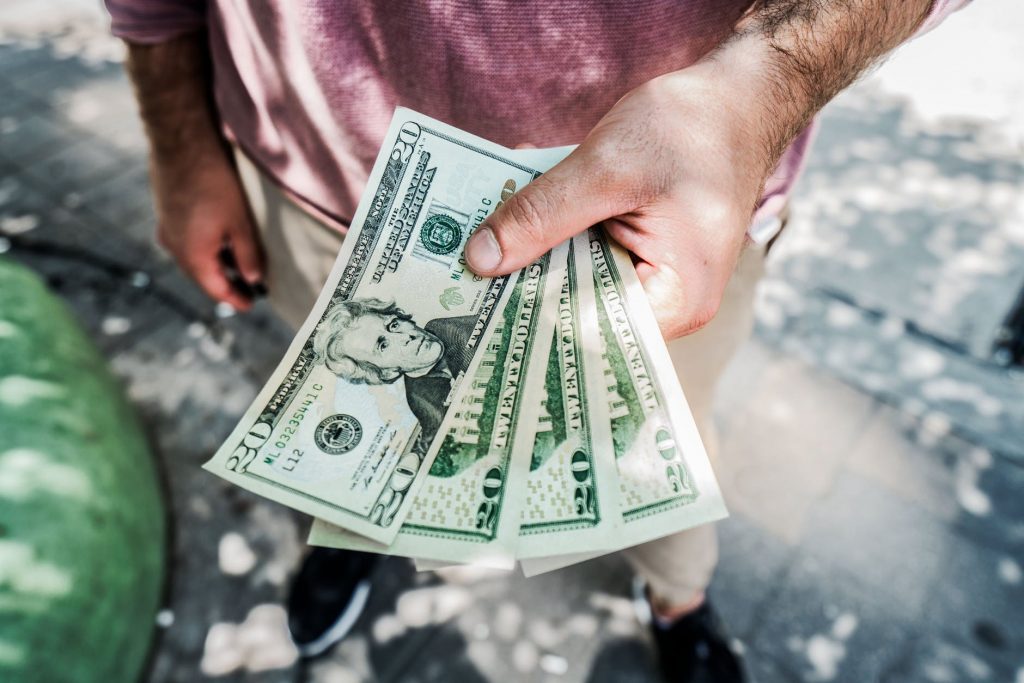
In the past 24 hours, I’ve taken a shower, brushed my teeth, put on workout clothes, put on regular clothes, ran errands, went for a run, made dinner, got ready for bed…
And no one paid me to do any of it!
It seems kind of ludicrous, right? Getting paid to do basic, personal, life tasks? (Not that it wouldn’t be nice, mind you) It’s just that it’s kind of part and parcel of being a human.
But paying kids for these kinds of things is exactly what this article advocates. Mom says, “As they complete tasks, they check them off and earn money.” She also says it’s the best decision she’s ever made.
And I can’t help but wonder… what happens when they’re off at college and Mom’s not around to pay them anymore?
But I’ll get back to that.
The general problem with paying kids to perform basic tasks (or using sticker charts, or having them earn “screen time”, or anything of that ilk) is that it is conditioning them to expect an external reward anytime they do something, rather than acting out of their own intrinsic desire. It doesn’t actually teach them anything, except that if they do xyz, they’ll get a pony. (A pony, a dollar, an hour of Fort Nite, whatever)
Alfie Kohn, author of Punished by Rewards says it best when he says,
“When we repeatedly promise rewards to children for acting responsibly, or to students for making an effort to learn something new, or to employees for doing quality work, we are assuming that they could not or would not choose to act this way on their own.” (More quotes from the same book here)
Do rewards work, at least in the short term? Sure! Why wouldn’t a child agree to get dressed (or make their bed or do their homework) if they get paid when they’re done? The thing is though, raising kids is not a short-term proposition. It’s long term. And in the long term, rewards not only don’t work, but they are counterproductive. The child wasn’t trusted enough to do what he needed to do without being paid. He was, in fact, was robbed of the chance to learn to do things of his own volition.
What happens when little Jimmy decides, “You know what, I have enough money right now. It’s not worth it to take a bath?” Mom’s going to have to either concede that her money plan wasn’t as foolproof as she thought, OR she’s going to end up needing to exert even more control, and as such have to up the ante. She’s effectively taught her son that one takes a bath to get paid, not because it’s hygienic or feels nice or keeps one from stinking.
And to get back to my earlier point… what happens when Son goes off to college and doesn’t have Mom to pay him for doing his homework? For studying for his test? From keeping his room from becoming a giant petri dish? It may sound blunt, but he’ll likely be stunted, unable to make heads or tails of his own sense of responsibility, of his own sense of right and wrong. Those are lessons he’s going to have to learn as a young adult, rather than naturally as a child.
How much better to learn these things as a child, under the watchful care and example of your parents!
The goal (at least my goal) is to raise children that are responsible, capable, kind, and well-adjusted. Children who operate from their own internal sense of what is good and right. And that just won’t happen if they’re paid every time they take a breath.









If you want to shape or increase the frequency of a behavior in another human or animal, positive reinforcement is the kindest, most loving way to do it. There’s an entire body of science that explains when and how to use positive reinforcement to change behavior that explains how and why consistent reinforcement is counterproductive.
Every behavior we engage is being maintained by positive or negative reinforcement. If a mom isn’t using positive reinforcement to help her kids establish good habits, she’s probably using negative reinforcement, a less kind and loving means.
Ther